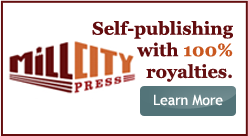Self-Publishing vs. Traditional Book Publishers
Traditional book publishers (at least until recently) paid all of the expenses incurred in the publishing process: editing, cover design, formatting, printing, distribution, marketing, and so on. Under this traditional publishing model, authors didn’t pay a dime toward any publishing or marketing cost. In exchange, they got their books published for “free.” However, publishing is just like anything else-there is no such thing as a free lunch. Assume for the purpose of this section that the author being discussed is a typical first-time author getting a shot with one of the traditional book publishers. This author gives away the rights to the book for some period of time (five to seven years) and receives a puny royalty (typically 5-8 percent of the retail price). In some cases, authors may receive advances against royalties. A typical advance for a new, unknown author might be $2,000-$5,000. In the self-publishing model, the author is paying all of the upfront expenses, and should be reaping most if not all of the reward.
Traditional book publishers don’t make it easy to get your work in front of them. So, the first step in getting a traditional publisher to even think about your book is to write a query letter that gets an agent or publisher to notice you. The “old guard” is still in place. In almost every case, you (the author) must write a query letter that explains who you are, what your book is about, who the intended audience is, and how you intend to market the book so that this audience will know that your book exists. Some helpful links about query letter writing can be found at http://www.charlottedillon.com/query.html.
As you probably know by now, sending query letters to agents and publishers often amounts to tossing these letters into a black hole in the middle of a remote galaxy. Sometimes an agent or publisher will contact you and ask for more material, which is a good sign. Sometimes they never write you back at all or send you a form rejection letter. Even if they ask for more material, it doesn’t mean that you’re getting a contract. It means that they are going to think about reading more of your submitted material whenever they feel like it-hence the black hole analogy. Remember, as the traditional publishing industry continues to contract, agents have fewer and fewer places they can go to pitch a new book. Similarly, getting your query letter to be read or acted upon by a traditional publisher (which is probably right now shedding mid-list authors and not taking on many newbies) is almost impossible. You should start seriously thinking about self-publishing.
Of course, every year a few authors break into this virtually locked-down universe. Let’s assume for the sake of argument that you are one of them. Presumably, authors lucky enough to get a contract from a traditional publisher choose that route because the publisher brings years of design, marketing, PR contacts, and other important relationships to the table. How many of those relationships will be leveraged for the release of a book by a little-known author? Probably not many. More typically, the traditional publisher eventually breaks the bad news to the author that it doesn’t have the budget for a marketing campaign or book tour. However, the publisher offers names of people to call who provide those services to the author for a fee, since the author is now under contract-enter the double-edged sword. The author got the contract she worked so hard to get only to learn that the chance of making significant book sales rests solely on her shoulders (and wallet). If the author doesn’t spend the marketing money required to help launch the book, the book will likely fade away in the publisher’s warehouse and eventually become back-listed (the publishing world’s purgatory). If the author spends money to market her book, she’s now spending money to make her publisher the lion’s share of profit for each book sold.
Often, marketing is the most expensive part of the publishing process, so while not having to pay for up-front production expenses is attractive, that alone may not be a good enough reason to sign with a traditional publisher. The author will likely give away a lot (rights, control, subsidiary rights, most of the earnings) and end up paying for the marketing expenses, putting herself in the very financial position she may have been in had she self-published. If the book sells decently, the publisher becomes the big winner. Yes, the publisher spent some money up front, but it is taking little to no risk where it matters most-marketing the book. For such a minimal up-front risk, is the traditional publisher entitled to reap the rewards if said rewards fall into its lap as a result of the author’s making efforts and money? The answer to this question will vary depending upon whom you ask. If you ask the publisher that put up money for an unknown writer to put his book out there, you’ll hear one opinion. If you ask the author who had to pay a publicist $6,000 to run a PR campaign, you’ll hear another.
The one way to avoid the question altogether is to consider self-publishing your book. If you’re going to spend money either way, you might as well control the process and the result.





